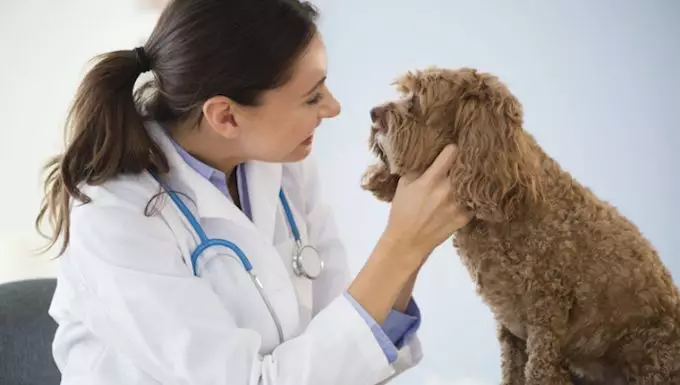Mouth cancer, scientifically referred to as ameloblastoma, is a condition that leads to the development of abnormal tissue growth within a dog’s oral cavity. This form of cancer typically affects middle-aged and older dogs, making them the most vulnerable demographic. While the precise origins of mouth cancer remain largely unknown, its manifestation can significantly impact a dog’s quality of life and overall health.
Recognizing the symptoms of mouth cancer early on is crucial for effective intervention. Common indicators include persistent bad breath, difficulty eating or swallowing, and noticeable swelling in the mouth or jaw area. Pet owners may also observe excessive drooling or changes in chewing habits, which can be distressing for the animal. These symptoms, albeit not specific to mouth cancer, warrant immediate veterinary consultation for an accurate diagnosis.
The exact etiology of mouth cancer in dogs is classified as idiopathic, signifying that it arises without a known cause. However, certain factors are believed to contribute to the risk. Genetic predispositions may play a role, as some breeds may be more susceptible to developing oral tumors. Environmental carcinogens, including exposure to certain chemicals and secondhand smoke, may also be implicated. Additionally, viral infections have been hypothesized to affect a dog’s oral health, leading to tumor development.
When a dog presents with symptoms indicative of mouth cancer, a comprehensive diagnostic approach is employed by veterinarians. Initially, they will gather a detailed history of the dog’s symptoms, any behavioral changes, and relevant medical history. A thorough physical examination follows, supplemented by blood and urine tests, which help assess the dog’s overall health. Advanced imaging techniques such as X-rays or CT scans may be utilized to understand the extent of the disease better. The definitive diagnosis, however, often requires a deep tissue biopsy, allowing the veterinarian to analyze the affected cells histologically.
Treatment for mouth cancer primarily revolves around surgical intervention. The primary goal is to excise the tumor effectively. Depending on the tumor’s size and location, radiation therapy might also be recommended post-surgery to eliminate any remaining cancerous cells. During recovery, it is essential to foster a tranquil environment for the dog. Additionally, dietary modifications may be necessary, with veterinarians providing tailored suggestions to facilitate healing and maintain nutritional health.
Mouth cancer poses a serious health challenge for dogs, particularly in their later years. Understanding the symptoms, potential causes, and treatment options is vital for pet owners. Early detection and intervention are critical for enhancing your dog’s prognosis and ensuring a better quality of life. If pet owners suspect their dog may be exhibiting signs of mouth cancer, prompt veterinary consultation is imperative. By working closely with your veterinarian, you can ensure that your beloved pet receives the necessary care and support in their time of need.

